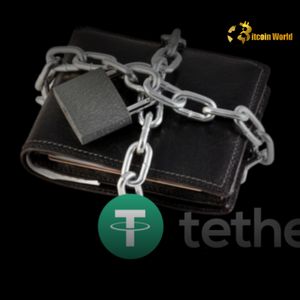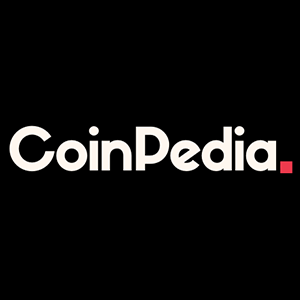Tether Freeze: USDT Frozen in Major OFAC Sanctions Crackdown
7 min read
BitcoinWorld Tether Freeze: USDT Frozen in Major OFAC Sanctions Crackdown In a significant move highlighting the increasing intersection of traditional finance regulations and the cryptocurrency world, stablecoin giants Tether and Circle have taken action against addresses linked to illicit activity. This development saw a Tether freeze and a Circle freeze on specific digital wallets, directly responding to sanctions imposed by U.S. authorities. Understanding the Recent Action: USDT Frozen Addresses Recent reports from crypto tracking platform MistTrack on X confirmed that approximately 19,955 USDT frozen across two addresses were linked to Funnull Technology. Funnull Technology is a computer infrastructure provider based in the Philippines. This action by Tether and Circle wasn’t arbitrary; it was a direct consequence of sanctions announced on May 29 by the U.S. Treasury’s Office of Foreign Assets Control (OFAC). OFAC targeted Funnull Technology for its alleged involvement in widespread ‘pig butchering’ scams. These sophisticated frauds manipulate victims into investing in fake crypto platforms, ultimately stealing their funds. By freezing the USDT held in these specific wallets, Tether and Circle are demonstrating their commitment to complying with international sanctions and combating the use of their stablecoins for illicit purposes. What Are OFAC Sanctions Crypto Targets? The U.S. Treasury’s OFAC plays a crucial role in enforcing U.S. foreign policy and national security goals through economic and trade sanctions. In recent years, as cryptocurrencies have become more widely adopted, OFAC’s focus has expanded to include digital assets and the entities that use them for illegal activities. OFAC sanctions crypto addresses and entities when there is evidence they are involved in: Terrorist financing Money laundering Cybercrime (like ransomware attacks or scams) Evading sanctions against rogue states or individuals The action against Funnull Technology is part of a broader effort by OFAC to disrupt the financial infrastructure used by cybercriminals, particularly those engaged in large-scale investment frauds like pig butchering scams. By identifying and sanctioning entities like Funnull, OFAC aims to make it harder for these criminal networks to operate and profit from their illegal activities. The Role of Tether and Circle in Compliance Tether, the issuer of USDT, and Circle, the issuer of USDC, are the two largest stablecoin providers globally. Stablecoins are cryptocurrencies designed to maintain a stable value, usually pegged to a fiat currency like the U.S. dollar. Their stability makes them popular for trading, transferring value, and increasingly, for holding funds. As centralized entities that issue and manage these stablecoins, Tether and Circle have the technical capability to freeze assets held in specific addresses. This ability is a double-edged sword in the crypto community, often sparking debate about centralization versus decentralization principles. However, it is also a necessary function for these companies to comply with regulations and law enforcement requests. When OFAC issues sanctions targeting specific individuals or entities, it often includes identifying associated cryptocurrency addresses. Tether and Circle, like traditional financial institutions, are then obligated to screen their transactions and freeze funds linked to these sanctioned addresses. The Circle freeze and Tether freeze in the Funnull case are direct examples of this compliance mechanism in action. Why Stablecoin Regulation is Becoming Crucial The Funnull case underscores the growing importance of Stablecoin regulation . As stablecoins become integrated into the global financial system, regulators worldwide are scrutinizing how they are used and the potential risks they pose, including their use in illicit finance. Regulators are keen to ensure that stablecoin issuers have robust Anti-Money Laundering (AML) and Know Your Customer (KYC) procedures in place. They also want to ensure issuers can comply with sanctions regimes, just like banks and other financial intermediaries. The ability of Tether and Circle to freeze the USDT frozen in the Funnull-linked addresses is often cited by regulators as a necessary feature for stablecoins to operate within legal frameworks. However, achieving effective Stablecoin regulation is complex. It involves balancing the need for compliance and financial stability with the innovative potential and decentralized ethos often associated with cryptocurrencies. The ongoing discussions around stablecoin legislation in various countries aim to strike this balance. Exploring Pig Butchering Scams and Crypto Use ‘Pig butchering’ scams, also known as ‘Sha Zhu Pan,’ are a particularly cruel type of investment fraud that has proliferated globally. The name comes from the idea of fattening a pig before slaughtering it. Here’s a simplified breakdown of how they typically work: Initial Contact: Scammers often make contact through dating apps, social media, or messaging platforms, building a rapport and romantic or friendly relationship with the victim over weeks or months. Building Trust: They share fabricated stories of wealth gained through cryptocurrency investments, presenting themselves as successful traders or insiders. The Setup: The scammer convinces the victim to invest a small amount on a seemingly legitimate-looking (but fake) trading platform or app. The victim might even see small, fabricated profits initially, encouraging them to invest more. The ‘Butchering’: Once the victim has invested a significant amount (the ‘fattening’), the scammer and the fake platform disappear, or the victim is told they need to pay exorbitant ‘taxes’ or ‘fees’ to withdraw their funds, which they never can. Cryptocurrencies, particularly stablecoins like USDT, are often the preferred method of payment for these scams because they can be sent quickly across borders and offer a degree of pseudonymity, making tracing and recovery difficult for victims and law enforcement. Funnull Technology’s alleged role likely involved providing infrastructure or services that facilitated these fraudulent platforms or the movement of illicit funds. The Implications of Stablecoin Freezes The ability of stablecoin issuers to freeze assets has significant implications for the crypto ecosystem: Enhanced Compliance: It allows issuers to cooperate with law enforcement and comply with sanctions, potentially reducing the use of stablecoins for illicit activities. This could make stablecoins more palatable to traditional financial institutions and regulators. Centralization Concerns: Critics argue that the power to freeze assets undermines the decentralized nature that many associate with cryptocurrencies. It gives issuers significant control, raising questions about who decides what gets frozen and under what authority. User Risk: While freezes primarily target illicit funds, there’s a theoretical risk of legitimate users being caught in the crossfire due to mistaken identity or association with sanctioned entities. Precedent Setting: Each instance of a freeze sets a precedent, reinforcing the expectation that stablecoin issuers will act as gatekeepers within the crypto space, similar to banks. The Tether freeze and Circle freeze on the Funnull addresses serve as a stark reminder that holding stablecoins issued by centralized entities comes with different considerations than holding truly decentralized cryptocurrencies like Bitcoin. Actionable Insights for Stablecoin Users Given these developments, what should stablecoin users know and do? Understand Your Stablecoin: Be aware of whether the stablecoin you hold is issued by a centralized entity (like USDT, USDC) or is algorithmic/decentralized (though these have faced other challenges). Centralized issuers can freeze assets under certain conditions. Know the Risks: Understand that compliance with sanctions and law enforcement is a reality for centralized stablecoin issuers. Your funds could potentially be frozen if linked, even indirectly, to sanctioned activity. Practice Due Diligence: Be extremely cautious of unsolicited investment advice, especially on social media or dating apps. Research any platform thoroughly before sending funds. If it sounds too good to be true, it almost certainly is. Use Reputable Platforms: Only use well-known, regulated cryptocurrency exchanges and wallets. Stay Informed: Keep up-to-date with regulatory developments and how they impact the stablecoins you use. The fact that USDT frozen in this case was linked to alleged criminal activity underscores the ongoing battle against illicit finance in the crypto space. The Future of Stablecoins and Compliance The Funnull case is unlikely to be the last time we see stablecoin issuers acting on sanctions. As regulators like OFAC become more adept at tracing crypto flows, pressure on issuers to maintain robust compliance programs will only increase. This could lead to: More stringent KYC/AML requirements for stablecoin users, even for smaller transactions. Increased collaboration between stablecoin issuers, exchanges, tracking firms, and law enforcement. Potential regulatory frameworks specifically designed for stablecoins, mandating certain compliance capabilities. While some in the crypto community lament the centralization aspects highlighted by instances like the Tether freeze and Circle freeze , others see it as a necessary step for stablecoins to gain broader acceptance and integration into the mainstream financial system, provided it is done transparently and under clear legal authority. Summary: A Clear Message on Illicit Crypto Use The freezing of USDT by Tether and Circle in response to OFAC sanctions against Funnull Technology sends a clear message: the crypto ecosystem is not immune to traditional financial regulations and law enforcement actions, especially when it comes to centralized stablecoins. The USDT frozen represents a direct blow against the financial channels allegedly used by pig butchering scams. This event highlights the ongoing efforts by regulators to combat illicit finance using digital assets and the complex role stablecoin issuers play in navigating compliance while operating within a space that values decentralization. It reinforces the importance of robust Stablecoin regulation and serves as a critical reminder for users to exercise caution and conduct thorough due diligence to avoid becoming victims of scams facilitated by crypto. To learn more about the latest crypto market trends, explore our article on key developments shaping Bitcoin price action. This post Tether Freeze: USDT Frozen in Major OFAC Sanctions Crackdown first appeared on BitcoinWorld and is written by Editorial Team

Source: Bitcoin World



